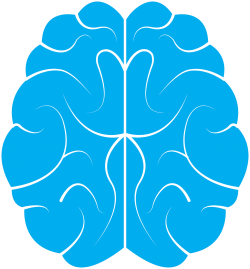Opioids work by altering and impairing a person’s brain chemicals negatively affecting brain function in various ways.
How Opioids Affect the Brain
Opioid drugs are manmade or synthetic drugs that mimic the effects of opiates, such as morphine or codeine. Opioid drugs include drugs like, heroin, Percocet, Percodan, Oxycontin and Vicodin. Throughout the years opioids have become more widely abused, especially with the increase of sales of prescription painkillers.
According to the Center for Disease Control and Prevention, there has been a 300% increase of sales in prescription painkillers since 1999, and because of this, overdose deaths from prescription pills have significantly risen throughout the years. In 2019 alone, there were approximately 49,860 fatalities that involved opioid overdoses, accounting for over 70% of all drug overdose deaths.
People abuse opioid drugs when they take the drug illegally and use the drug for non-medical purposes. All opioids are highly addictive, so when a person continues to abuse the drug, they have a higher chance of forming an addiction to the drug. If a person develops an addiction to an opioid drug, they will have uncontrollable urges to use the drug, and this will lead to them continually using the drug. Prolonged use of opioid drugs can lead to a variety of health problems, some of which can lead to brain damage.
How Opioid Abuse Affect a User’s Brain
According to the Institute for Substance Abuse Treatment Evaluation, opioids work by attaching to proteins in the brain, spinal cord, and gastrointestinal tract, called opioid receptors. When opioids attach to opioid receptors, they block the transmission of pain messages to the brain, resulting in a person feeling little to no pain. Moreover, opioids typically induce a euphoric feeling to form in a user’s body by affecting the brain regions that mediate pleasure.
People who abuse opioids commonly feel pleasurable, warm, and drowsy, as well as, at ease with all matters in their life. Opioid abuse relieves stress in people because the drugs are sedatives and will detach a person from pain, or doing any strenuous activities. In addition, opioids will reduce a user’s heart rate, cause constipation, cause a widening of blood vessels, and depress coughing and breathing reflexes.
Although the effects of opioids may be pleasurable, the constant interferences with the brain chemicals over long periods of time can result in a person’s brain not being able to adequately produce the needed amount of chemicals for normal functioning. In addition, prolonged opioid abuse can lead to a person having panic attacks, anxiety, and nerve damage whenever the drug is not in their body.
A person who has decided to stop using an opioid drug after abusing the drug for a long time should make sure to get therapy once they stop using. An opioid rehab may be the best choice for an individual to involve themselves in to help them conquer their drug addiction because it includes necessary therapy sessions for a person to attend as well as medical supervision.
the Take-Away

